50 Women in the Tech Industry Every Man Should Know
The tech industry is a sector dominated by men. You’ve probably heard about well-known tech giants like Bill Gates, Jeff Bezos or Mark Zuckerberg, but you might not know about the equally impressive female tech gurus. Research shows that almost 80% of students cannot name a single famous woman working in tech. To solve this problem, we’ve got a list of the top 50 women in the tech industry you should know about!
Despite the contributions made by women to the tech industry, even at tech giants like Google, Facebook, and Apple — women make up less than 30% of all employees. Although teams of both men and women are responsible for innovative technologies like the smartphone or computer games, women hold a meager 25% of leadership roles available.
In the field of computer science alone, a gender balance isn’t expected until approximately 2100. But why wait 80 years?
This list is just a taste of the female innovators, visionaries, and founders taking tech by storm. They are living proof that with perseverance, anyone — regardless of gender — can succeed in the tech industry.
Quick Guide: 50 Women in the Tech Industry Every Man Should Know
- Christine Spiten — Engineer and Co-Founder of Blueye Robotics
- Melanie Perkins — CEO and Co-Founder of Canva
- Marissa Mayer — IT Executive and Co-Founder of Lumi Labs
- Charity Wanjiku — Co-Founder of Strauss Energy Ltd
- Pauline van Dongen — Tech Fashion Designer at Pauline van Dongen Studio
- Anita Schøll Brede — CEO and Co-Founder of Iris.AI
- Patricia Scanlon — CEO and Co-Founder of SoapBox Labs
- Helena Samsioe — CEO and Founder of GLOBHE Drones
- Tammarrian Rogers — Director of Engineering at Snap Inc.
- Tal Rabin — Head of Cryptography Research Group at IBM’s Thomas J. Watson Research Center
- Maru Nihoniho — Founder and Managing Director of Metia Interactive
- Funke Opeke — CEO and Founder of MainOne Cable Company
- Neha Narkhede — Co-Founder of Confluent
- Katie Moussouris — CEO and Founder of Luta Security
- Komal Mangtani — Senior Director and Head of Engineering and Business Intelligence at Uber
- Jean Liu — President of Didi Chuxing
- Carol Shaw — First Female Game Designer and Programmer
- Megan Smith — CEO of shift7, Creator of TechHire
- Leanne Kemp — Founder and CEO of Everledger
- Christy Wyatt — CEO of Absolute
- Marita Cheng — CEO and Founder of Aubot
- Susan Wojcicki — CEO of YouTube
- Jules Coleman — Co-Founder and Owner of Resi
- Jade le Maitre — Technical Director and Co-Founder of Hease Robotics
- Karen Dolva — CEO and Co-Founder of No Isolation
- Eileen Burbidge — Co-Founder of Passion Capital
- Elina Berglund — CEO and Co-Founder of Natural Cycles
- Ginni Rometty — Chairman, President and CEO at IBM
- Ursula Burns — CEO at VEON, Senior Advisor at Teneo and Non-Executive Director of Diageo
- Angela Ahrendts — Senior Vice President at Apple
- Meg Whitman — CEO of Quibi, Board Member at Dropbox
- Safra Catz — CEO of Oracle Corporation
- Anne Wojcicki — CEO and Co-Founder of 23andme
- Whitney Wolfe Herd — Founder and CEO of Bumble
- Julia Hartz — CEO of Eventbrite
- Stacy Brown-Philpot — CEO of TaskRabbit, Board Member at HP Inc. and Nordstrom
- Kathryn Parsons — Co-Founder and Co-CEO of Decoded
- Sheryl Sandberg — COO of Facebook
- Jackie Hunter — CEO of BenevolentBio
- Amy Hood — CFO of Microsoft
- Hooi Ling Tan — Co-Founder and COO of Grab
- Lucy Peng — Co-Founder of Alibaba
- Lexi Reese — COO of Gusto
- Sara Klemens — COO at Twitch
- Francoise Brougher — COO at Pinterest
- Lisa Su — CEO of Advanced Micro Devices (AMD)
- Brie Code — CEO and Creative Director at TRU LUV
- Stephanie Harvey — Ubisoft Game Developer
- Belinda Johnson — Former COO at Airbnb
- Ruth Porat – CFO and SVP of Alphabet
Editor’s Note: We value our relationship with our readers, and we strive to earn your trust through transparency and integrity. We are in the same ownership group as some of the industry-leading products reviewed on this site: ExpressVPN, Cyberghost, Private Internet Access, and Intego. However, this does not affect our review process, as we adhere to a strict testing methodology.
The Top 50 Women in Tech You Need to Know
1. Christine Spiten — Engineer and Co-Founder of Blueye Robotics
![Scheenshot of Christine Spiten standing outside looking into the distance.]()

As a co-founder of Blueye Robotics, Christine Spiten oversees the design, creation, and sales of underwater drones controlled by phones. Blueye robots are designed to dive 150 meters deep into the ocean with the aim to expand human knowledge on underwater beauty as well as the dangers sea life faces. Spiten wants to use her product as both a discovery tool and a way to teach the public about the effects of global warming.
2. Melanie Perkins — CEO and Co-Founder of Canva

Melanie Perkins is one of the youngest female CEOs in the world. At just 22 years old, she started leading her own tech startup company, Canva. The popular, free-to-use online design platform is based on the same technology as Fusion Books, which Perkins created to help her classmates design their yearbooks. Due to the simple style and ease of use, Canva is now widely used across the world for both business and personal designs. It’s currently valued at over $1 billion.
3. Marissa Mayer — IT Executive and Co-Founder of Lumi Labs
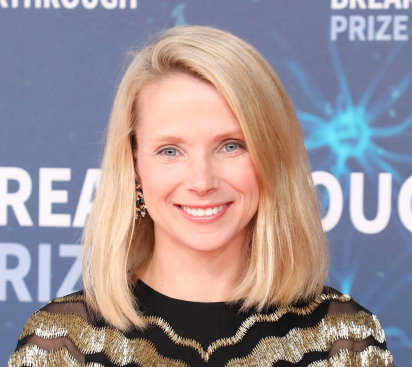
Marissa Mayer is an Artificial Intelligence specialist, IT executive, and Co-Founder of Lumi Labs. Her greatest achievements include designing the layout of Google’s popular search homepage and leading Yahoo! to impressive growth. When Yahoo! was sold in 2017, Mayer moved on to creating her own business, called Lumi Labs. Marissa Mayer has multiple patents in her name in both AI and interface design. She was also named on Forbes “40 under 40” list.
4. Charity Wanjiku — CEO & Co-Founder of Strauss Energy Ltd.
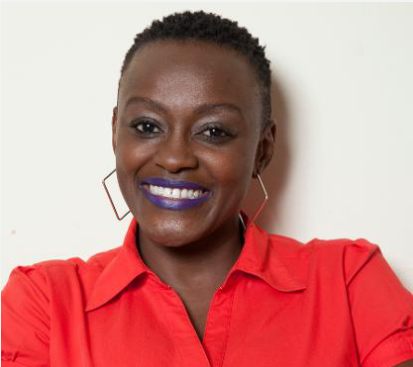
Charity Wanjiku is a leader in the renewable energy industry in Africa. Aiming at reducing energy poverty in Kenya, she created an innovative solar power system, which combines solar cells with traditional roofing materials. Stima roofing tiles come equipped with a meter that measures energy use and recycles unused energy back to the national grid. Her tiles guarantee no blackouts as well as lower bills for homeowners. Wanjiku’s innovative idea aims to fully reduce Kenyan energy poverty in rural areas by 2030.
5. Pauline Van Dongen — Founder and Creative Director at Pauline van Dongen Studio
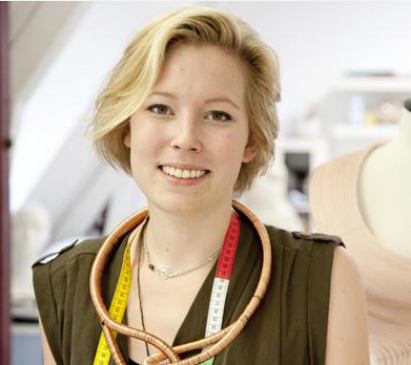
Pauline van Dongen, who launched her own studio at just 24 years old, is a very unusual fashion designer. All of her projects are equipped with wearable technology. Among her most popular designs are cardigans that measure movements of elderly wearers, tops that correct posture, and a jacket that strokes the wearer’s back in response to touch. With her idea, Pauline aims to show that you can naturalize technology and make it a part of everyday life.
6. Anita Schjøll Brede — CEO and Co-Founder of Iris.AI
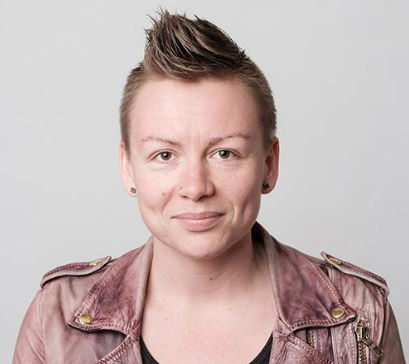
Anita Schjøll Brede launched her company, Iris.AI, as the first AI search tool designed to make research more organized and productive. The startup came to life when Brede discovered that due to the lack of affordable and efficient search methods, research teams spend approximately 3 weeks creating a reading list. Designed to work like a human brain, Iris.AI extracts keywords and analyzes word frequency in scientific papers. Because of its algorithm, it is able to read through published work 90% faster than any other research method. Iris.AI is now widely used around the world as an online research tool.
7. Patricia Scanlon — CEO and Co-Founder of SoapBox Labs
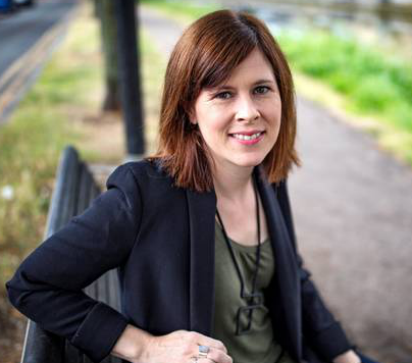
Patricia Scanlon has been working in Speech Recognition and AI for 20 years. In 2013, she launched SoapBox Labs in order to develop AI voice and speech recognition apps to enhance children’s language learning. Her idea came from noticing the lack of artificial intelligence products tailored to the youngest generation. SoapBox Labs currently has over 25,000 different children’s voices in their database and each of their devices can adapt to a specific child’s needs.
8. Helena Samsioe — CEO and Founder of GLOBHE Drones
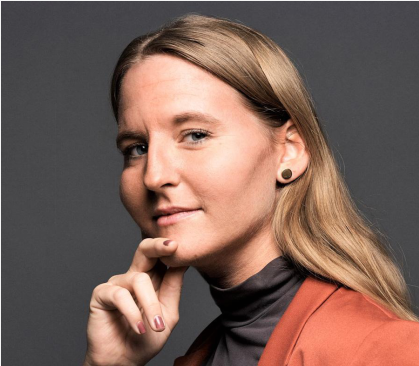
With her extensive experience in Disaster Management, Helena Samsioe realized that technology and drones could be used to help people exposed to dangerous living conditions. In 2015, she launched GLOBHE — a humanitarian drone service company. The startup utilizes drones to analyze and share maps between its users all over the world in order to prevent and respond to disasters quicker. Apart from collecting bird’s eye footage of natural catastrophes, GLOBHE uses drones to deliver medicine and medical tools to those in need.
9. Tammarrian Rogers — Director of Engineering at Snap Inc.
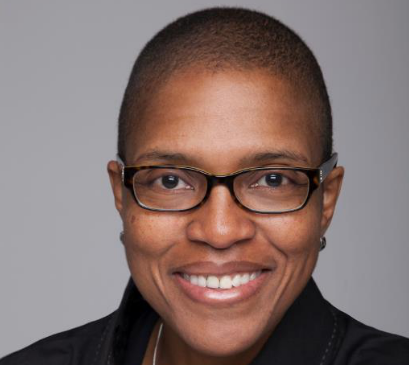
Tammarrian Rogers has over 30 years of experience in both hardware and software development. Currently, as a head of engineering at Snap Inc., she oversees the design and improvement of code quality. She’s also responsible for the usability and effectiveness of Snapchat, Spectacles, and Bitmoji. She has paved the way for many other women of color in the industry as one of the first black female employees at tech giants like Microsoft and Apple.
10. Tal Rabin — Head of Cryptography Research Group at IBM

As a female engineer, Tal Rabin ranks among the 22 most powerful women tech specialists in the world, according to Business Insider. She’s responsible for designing the most efficient and secure encryption algorithms used worldwide. Her aim is to make online communications more secure for everyone. In her lifetime, she has co-authored over 100 scientific papers, intending to make encryption and cybersecurity more accessible to the general public.
11. Maru Nihoniho — Founder and Managing Director at Metia Interactive

Video games can serve a bigger purpose than just entertainment, which is the prime reason behind Maru Nihoniho’s startup, Metia Interactive. The company designs and develops free online games aimed at young people with mental health issues. Their most popular creation, Sparx, helps teenagers deal with depression and anxiety through gameplay, which uses simple Cognitive Behavior Therapy tasks. Due to the importance and impact of Sparx, Maru Nihoniho was named Innovator of the Year at the Xbox 2017 MCV Pacific Women in Games Awards.
12. Funke Opeke — CEO of MainOne Cable Company, Founder of Main Street Technologies
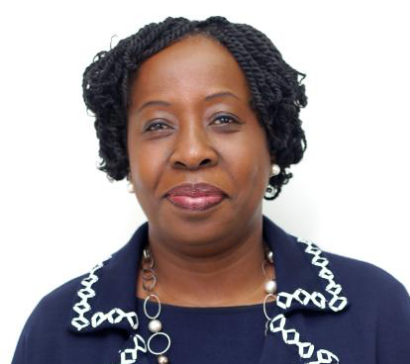
Funke Opeke is an electrical engineer with over 20 years of experience working in US telecoms. As the Internet started to take over the world, she moved back to Nigeria and very quickly noticed its low online connectivity. She started MainOne with the aim of putting the country and the rest of the continent online. After raising an impressive $240 million in funding, she successfully laid over 7,000km of underwater high capacity internet cable. Her actions boosted the African economy due to the growth of online banking, retail websites, and online booking services.
13. Neha Narkhede — Co-Founder of Confluent

Growing up in Indian suburbia, Neha Narkhede had to work extra hard to leave her mark on the tech industry. Her persistence and determination led her to co-founding what is now the most popular streaming data technology company, Confluent. The site focuses on managing large scale real-time data using Apache Kafka — a stream-processing software developed by Narkhede. The software has since been released as an open-source, enabling other platforms to use and improve Narkhede’s code. Today Confluent is a $2.5 billion company, with Netflix and Lyft as its customers.
14. Katie Moussouris — Founder and CEO of Luta Security
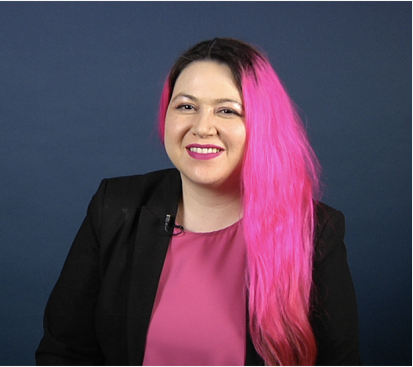
Katie Moussouris, both a self-taught software developer and cybersecurity expert, was one of the first females to focus on creating bug bounty programs. At Luta Security, she advises companies and governments on online security and vulnerability disclosures. Starting her bug bounty programs at Microsoft, she was recognized by the US Department of Defence, where she developed “Hack the Pentagon” and “Hack the Airforce” schemes for hackers. Moussouris is also an active public speaker who advocates for better internet safety across the world.
15. Komal Mangtani — Senior Director and Head of Engineering and Business Intelligence at UBER

As a head of engineering at Uber, Komal Mangtani has helped the company grow to 5.5 million monthly users and $11.3 billion in yearly revenue. During her first 4 years at Uber, she built multiple learning-driven business machines, which improved payment process, tax engines, and fraud detection. Beyond her title, Mangtani has worked to lessen the industry’s gender gap, making sure Uber offers a variety of roles to everyone, regardless of their gender or cultural background. She also serves on the board of Women Who Code and donated $1.2 billion to Girls Who Code to increase diversity in computer science.
16. Jean Liu — President of Didi Chuxing
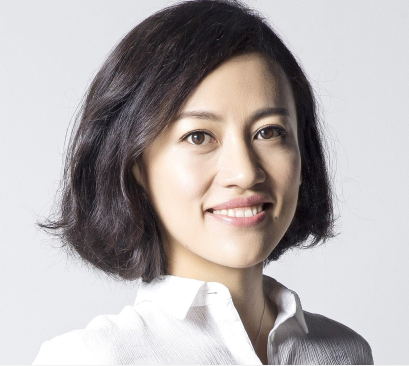
Climbing the career ladder as a woman in China is not easy, but Jean Liu persevered. Following her success at Goldman Sachs, she became the president of Didi Chuxing, China’s largest mobile transportation platform. Didi Chuxing’s transportation app, DiDi, currently serves over 400 million users across 400 cities. Encouraged by the app’s success in China, Liu is now working on expanding the company and growing it in Mexico and South America.
17. Carol Shaw — First Female Game Designer and Developer
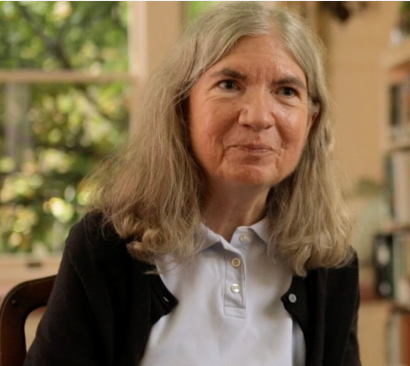
Recognized as the first professional female video game designer, Carol Shaw is an iconic game developer. She designed some of the most popular retro games on Atari 2600, like 3D Tic-Tac-Toe, Video Checkers, and River Raid — which is regarded as an Atari masterpiece. Shaw quickly became a vital part of Atari as a go-to developer, especially for the most difficult programming tasks. Despite retiring almost 20 years ago, Shaw is still an important part of the gaming industry and was recently awarded the 2017 Industry Icon Award at the Game Awards.
18. Megan Smith — CEO of shift7

Megan Smith is an award-winning tech engineer, responsible for making the internet widely available to the general public. While serving under Barack Obama As the first female Chief Technology Officer of the US, she helped the former president understand the power of online data and the need for constant innovation. During her time with the government, Smith opened more than 200,000 general public data sets, like weather and maps, and made them available online. She also focused on making the tech industry interesting and accessible through various initiatives, including the government-run program TechHire.
19. Leanne Kemp — Founder and CEO of Everledger
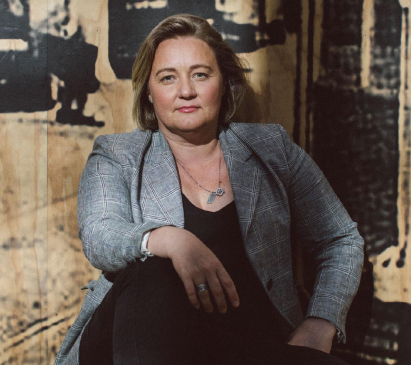
Everledger is a startup company created and led by a self-taught engineer, Leanne Kemp. Alongside her team of Everleger, she aspires to increase transparency within the valuable market industry. Kemp developed a set of technologies like blockchain, Radio-frequency identification (RFID), and data matrix coding used by stakeholders and industry partners to track the journey of diamonds from mines to expert stores. In order to tackle money laundering and general fraud, she is now looking to expand her business to verify fine wine, gemstones, and metals.
20. Christy Wyatt — CEO of Absolute
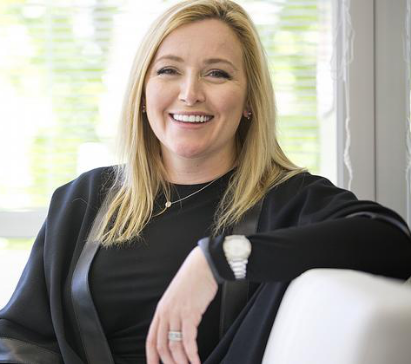
Absolute Software Corporation develops and sells computer software designed to monitor and track computers across the globe. The program, developed by CEO Christy Wyatt, is currently installed on over half a billion different devices in over 12,000 companies worldwide. Thanks to this software, multiple businesses were able to find and recover lost or stolen laptops. Now, Wyatt is guiding her company in shifting its focus from being a simple ‘track-and-trace’ tech security provider to an online security leader.
21. Marita Cheng — CEO and Founder of Aubot
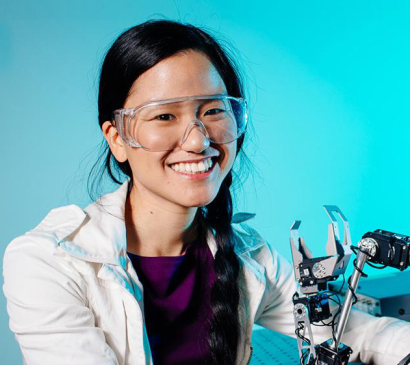
Marita Cheng combines her interest in robotics with a deep desire to help those in need. With her team at Aubot, she designed and marketed a telepresence robot called Teleport to enable a person’s virtual presence in a desired place. With Teleport, children in hospitals can attend schools, people with disabilities can still participate in tasks at work, and relatives and volunteers can monitor and socialize with the elderly. As well as leading Aubot, Cheng co-founded Aipoly — a smartphone app that can recognize and relay objects in real time to visually impaired people.
22. Susan Wojcicki — CEO of YouTube

Susan Wojcicki is possibly one of the biggest names in the modern tech industry. Her career developed at Google, where she kickstarted AdSense, earning the company its first big check. She’s also the reason why Google’s iconic logo changes according to holidays and special events. Encouraged by her success, she persuaded her colleagues to purchase YouTube, which was only a small but promising website at the time. As the CEO of the online video platform, she supervised the creation and release of YouTube Gaming, YouTubeTV, and YouTube Music. Wojcicki has been responsible for the platform since 2014.
23. Jules Coleman — Co-Founder of Resi
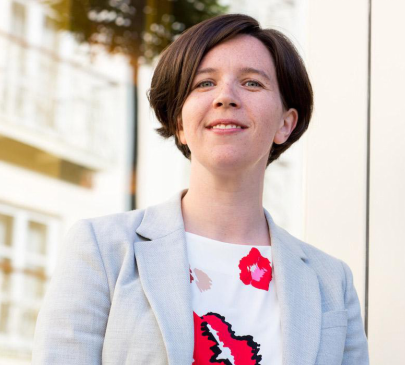
Jules Coleman got the idea for her business while looking for a new house renovation project online. Feeling increasingly frustrated with how difficult it was to assess the building’s potential through a few pictures, she pinpointed a gap in the market for investors like her. Despite her lack of programming knowledge, she successfully launched Resi — the first website that lets its users design a house online. The success of Resi.com earned her multiple tech awards as well as the title of “Internet Hero.”
24. Jade le Maitre — Technical Director and Co-Founder of Hease Robotics

Jade le Maitre found her passion in the science communication sector through her research project in human-robot interactions. Hease Robotics was founded to increase work efficiency by developing and providing autonomous customer service robots. To this day, the company provides robots to shops, airports, offices, and museums in France. Maitre’s most popular clients are Total (an oil and gas company) and Leclerc. Recently, Le Maitre created a website alongside her business, Lyon-Is-AI, in order to promote positive opinions about robots and AI.
25. Karen Dolva — CEO and Co-Founder of No Isolation

Karen Dolva is living proof that you don’t have to have a lot of experience to start a successful company. She set up No Isolation right after graduating as an expert in UX design. With the aim of reducing general social isolation, she has been working on developing “warm” technology for those who struggle to stay connected. Dolva designed and built a telepresence robot called AV1, which is used in hospitals and homes for children with long-term illnesses. She’s also behind the invention of KOMP — a one-button screen for the elderly that enables them to participate in social events online.
26. Eileen Burbidge — Co-Founder of Passion Capital
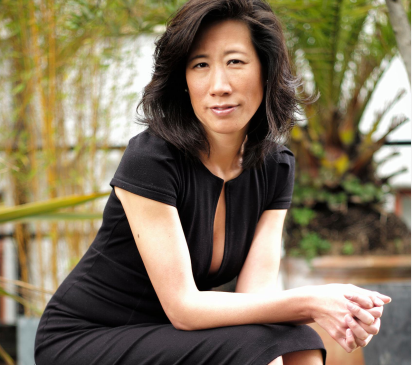
The Queen of British Venture Capital (as described by Fortune Magazine), Eileen Burbidge stands behind the success of many small and medium sized corporations, including Monzo Bank and Butternut Box. Her extensive experience in high positions at Skype, Sun, Apple, and Yahoo! enabled her to see potential in numerous startup companies. With Passion Capital, she carefully invests in and oversees the growth of promising businesses. On top of that, she occupies the position of Chair of Tech City UK for the Mayor of London’s Office.
27. Elina Berglund — CEO and Co-Founder of Natural Cycles
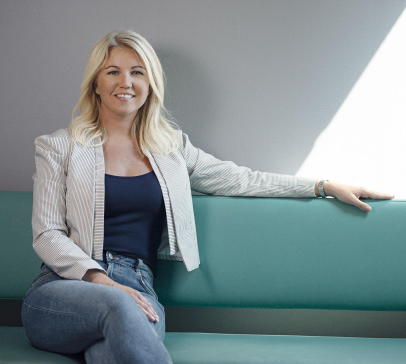
Elina Berglund originally started her career as a particle physicist. However, when she was looking for a good natural form of birth control, she discovered a big gap in the market. Driven by her observation, she wrote an algorithm based on her own menstruation cycle and created an app called Natural Cycles. The app identifies its user’s fertility window purely from daily body temperature measurements. The app currently has nearly one million downloads on the Google Play Store and is still growing in popularity.
28. Ginni Rometty — Chairman, President, and CEO of IBM
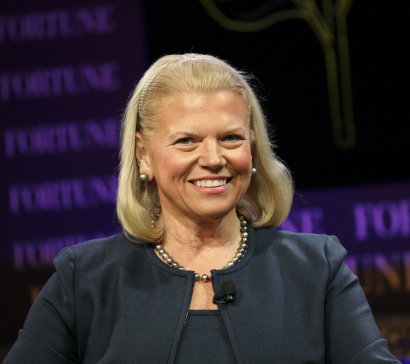
Ginni Rometty spent a long time rising in IBM’s ranks. Having worked at the tech giant since 1981, she is the current chair, president, and CEO, responsible for most of its growth. Leading IBM through a chain of major changes including transition into a data business, Rometty reinvented cybersecurity, quantum technology, and AI. Her successful attempts at purchasing Red Hat in 2018 made IBM one of the leaders in the cloud computing industry. Alongside her tech accomplishments, Rometty reimagined the company’s working culture by creating “no-collar” positions for those without a technology degree.
29. Ursula Burns — CEO of VEON, Senior Advisor to Teneo, and Non-Executive Director of Diageo
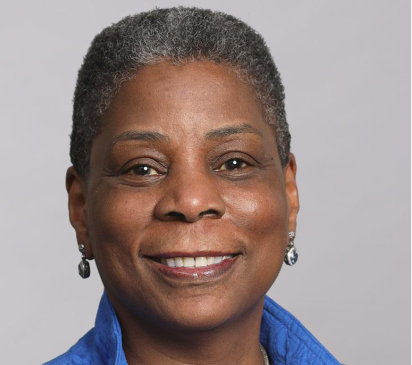
Back in the 1980s, when Ursula Burns was starting out as a tech employee, there weren’t many opportunities in the field for a woman of color. Reluctant to give up, she committed to climbing the career ladder at Xerox. In 2009, she became the first African-American female CEO of the leading document company. Recognizing her great knowledge and experience, that same year, Burns was asked to lead the White House National STEM program. She remained in that position for 7 years. Apart from her successful career, she’s become an important symbol for other women of color inside and outside of the tech industry.
30. Angela Ahrendts — Senior Vice President of Apple

People tend to associate Apple with the name of Steve Jobs, but the company owes a lot of its success to Angela Ahrendts. Despite her initial lack of interest in the tech industry, Ahrendts quickly took charge of improving the phone giant’s customer shopping experience, making it feel more like a luxury process. She designed the high-end looking Apple stores we can visit today. Ahrendts announced in 2019 that she was leaving Apple to take on new challenges in life. To this day, she has been the only female at such a high position in the company.
31. Meg Whitman — CEO of Quibi
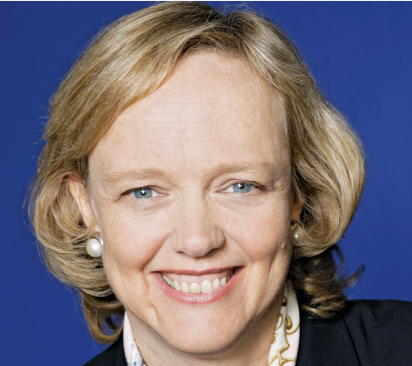
Meg Whitman graduated with an economics degree and quickly became well-known in the tech industry. She worked at various big tech corporations throughout her career, but is best known for leading the Hewlett-Packard split into two separate firms as well as leading eBay’s growth into an $8 billion sales company. Since becoming the CEO of Quiby, a mobile-only streaming platform, Whitman succeeded in securing over $1 billion in funding from investors like Disney, Sony, and Viacom. She is also the first female employee and CEO of the startup company she marketed as “mobile Netflix.”
32. Safra Catz — CEO of Oracle Corporation
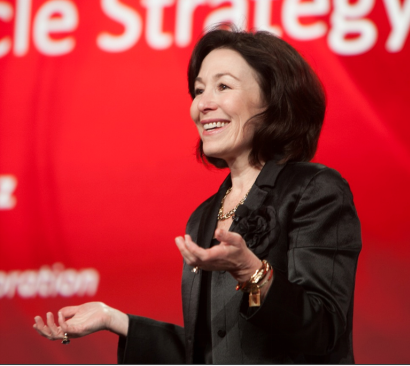
Safra Catz is the highest-paid female CEO in any US company. Leaving her career as an investment banker in 1999, she joined a computer technology corporation, Oracle. Her potential was quickly recognized and within 2 years, she was invited onto the company’s board of directors. In 2014, she became the first co-CEO of the company. Alongside her CEO partner, Mark Hurd, she drove the company’s biggest investment to date by acquiring its software rival, PeopleSoft. In 2019, Catz became the sole CEO of Oracle.
33. Anne Wojcicki — CEO of 23andme
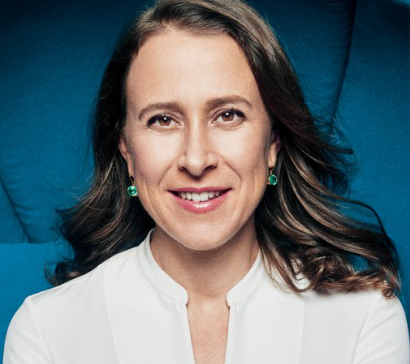
Despite starting out as a Wall Street analyst, Anne Wojcicki decided it wasn’t the right path for her. In 2006, she co-founded 23andme, a DNA testing firm that checks both the customer’s health status and ancestry. Undeterred by many similar companies on the market, Wojcicki worked hard to make 23andme the only genetics testing business to be cleared by the FDA for health tests. She is currently leading her team in discovering medicine to treat certain medical ailments.
34. Whitney Wolfe Herd — Founder and CEO of Bumble

Whitney Wolfe Herd started her career as the co-founder of Tinder, where she designed the app’s famous logo. Taking from her experience, she decided to set up a dating platform focused on empowering women. Despite the lack of great initial feedback, she created Bumble — a dating app designed to give more control to women. Bumble has since expanded rapidly, with Wolfe Herd even managing the app’s successful release in India, where many dating apps don’t perform well. Following the platform’s success, she also created BumbleBFF and BumbleBizz.
35. Julia Hartz — CEO of EventBrite
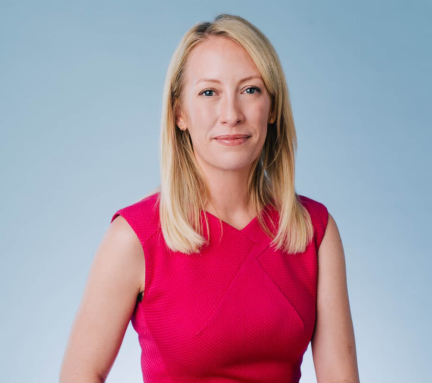
Julia Hartz noticed a lack of local event promotion online during her internship at MTV. Alongside her fiance, she built and founded EventBrite — a ticketing and event technology platform. The website quickly grew to become one of the most popular sites to promote and sell various events across California. Following its incredible success, Hartz took her fiance’s position as CEO of the company. Under her leadership, EventBrite has expanded to over 170 countries worldwide and became an award-winning company for its workplace culture.
36. Stacy Brown-Philpot — CEO of TaskRabbit
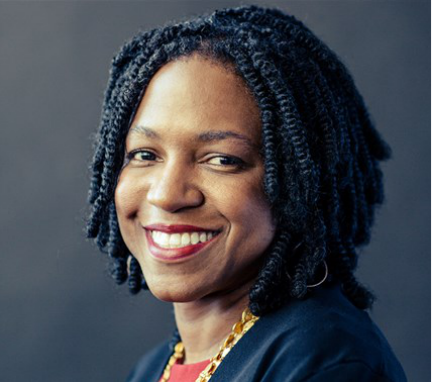
Stacy Brown-Philpot made history as one of the first black employees at Google, where she led online sales and operations for almost 10 years. Moving on as a CEO of TaskRabbit, she aimed to expand the platform worldwide and managed to double its worth across the US and the UK. As the app grew in popularity, Brown-Philpot supervised TaskRabbit’s acquisition by IKEA in 2017. Alongside her accomplishments as a CEO, Brown-Philpot is also a board member at various companies including Nordstrom, HP Inc., and Black Girls Code.
37. Kathryn Parsons — Co-Founder and Co-CEO of Decoded

Kathryn Parsons launched Decoded in 2012, with the aim of teaching its users to code in just one day. Since then, the company has expanded to include topics such as cybersecurity, data management, and Artificial Intelligence. Due to its courses with varying levels of difficulty, Decoded has been providing online classes to many tech giants like Google, eBay, Facebook, BBC, Microsoft, and TalkTalk. As a valued STEM expert, Parsons is also a member of the UK Prime Minister and London Mayor’s Business Advisory Boards.
38. Sheryl Sandberg — COO of Facebook
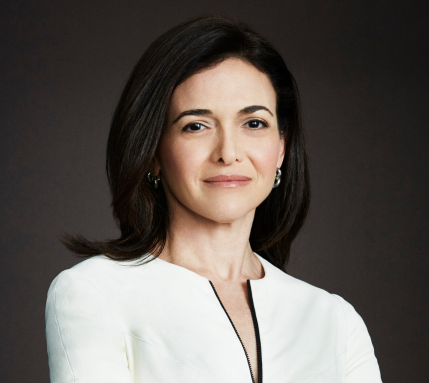
As the first woman on Facebook’s board of directors, Sheryl Sandberg quickly proved that she was the best fit for the role. By enabling smaller businesses to advertise on the platform, she increased not only Facebook’s revenue, but also its popularity. Sandberg was also the first person to recognize the need for protecting the privacy and security of Facebook users, aiming to reduce the platform’s negative impact on mental health. Despite numerous scandals tied to her name, Sheryl Sandberg is still one of the most recognizable women in the industry.
39. Jackie Hunter — CEO of BenevolentBio
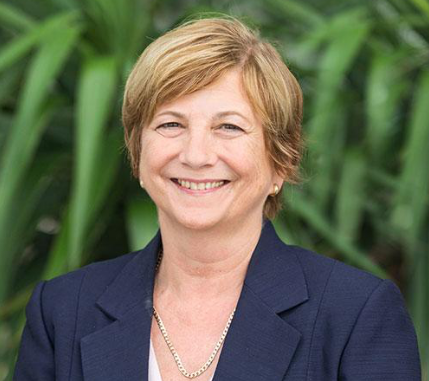
BenevolentBio owes its efficiency boost to Jackie Hunter. Drawing on her lifelong pharmaceutical experience, Hunter modernized the company by combining traditional medicine development with AI. This new approach, called BenevolentAI, revolutionized the speed of creating blueprints for new medication. Now as the CEO, Hunter is responsible for overseeing the correct application of BenevolentAI’s technology in the company.
40. Amy Hood — CFO of Microsoft
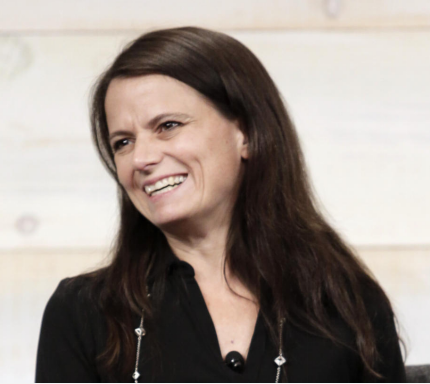
In 2002, Amy Hood joined Microsoft as Business Division leader, where she focused on improving Microsoft Office 365. 11 years later, Hood became Microsoft’s CFO. Since then, she has led the company through over 57 successful acquisitions, causing its stock to surge by nearly 300%. With deals including LinkedIn, Minecraft, and GitHub, Microsoft has become the biggest dealmaker in history. Most recently, Hood has been leading Microsoft in developing its cloud computing division.
41. Hooi Ling Tan — Co-Founder and COO of Grab

Taxi safety is a big issue in Malaysia, and Hooi Ling Tan decided to fix that. She is behind what’s now considered Southeast Asia’s most valuable startup company — a cab hailing mobile application called Grab. Basing her idea on Uber’s technology, she worked hard to increase the efficiency and safety for travelers around Malaysia. Hooi Ling Tan and her business partner also successfully expanded the firm by adding extra features like food delivery to their app.
42. Lucy Peng — Co-Founder of Alibaba Group
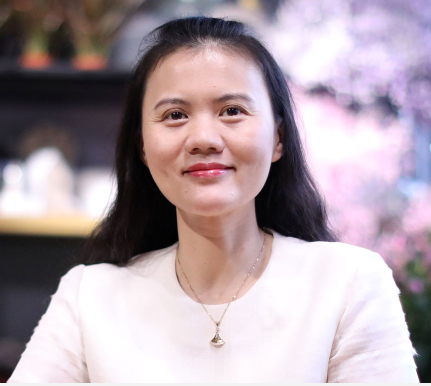
Lucy Peng is one of the pioneers in the online shopping industry. In founding her e-commerce company called Alibaba Group, she provided online services to retailers all over the world. This enabled shops to sell products through web portals and collect electronic payments. She’s also behind the development of shopping search engines and cloud computing services. As Alibaba Group expanded, Peng held various high-profile positions in the company. She stepped down as CEO of Alibaba’s e-commerce firm, Lazada, in 2018 to serve as the company’s chairman.
43. Lexi Reese — COO at Gusto

After learning the tricks of the trade at Google, Lexi Reese found her real passion — helping small businesses succeed online. She developed a cloud-based software called Gusto, which makes payroll and HR management more simple. The company helps new businesses do everything from setting up their work ethic to sending offer letters to new employees and managing taxes. Gusto is considered equally as beneficial to its workers as to its owners, and is known for facilitating a better relationship between the two. Thanks to Gusto’s popularity, Reese is now seen as one of the top female executives in Silicon Valley.
44. Sara Clemens — COO at Twitch
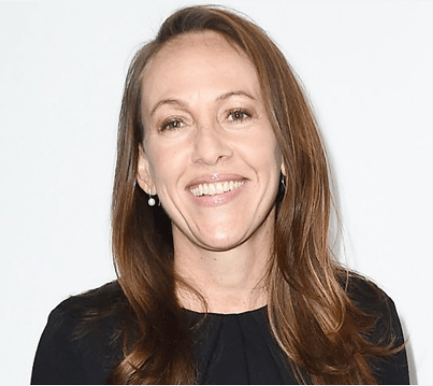
The popular game streaming platform, Twitch, experienced an influx of users when Sara Clemens became its COO. She saw great potential, not just in the company itself, but also in the streamers using the site. In order to give back to Twitch gamers, she created a Bounty Board which enabled the users to earn money by advertising certain products in their streams. Many popular streamers on the platform credit the start of their online careers to Clemens’ revolutionary idea.
45. Francoise Brougher — COO at Pinterest
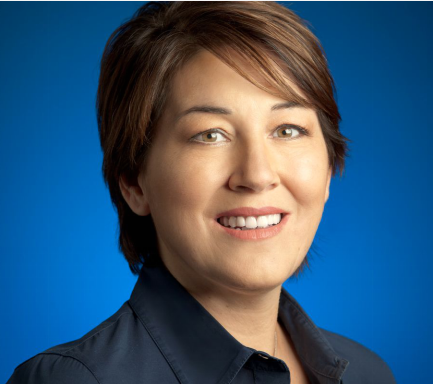
Francoise Brougher became well-known in the STEM field after becoming the first-ever COO at Google. She was responsible for leading global sales and operations teams and ensured the website’s growth in customer support and marketing. Her recognizable success led Pinterest to appoint Brougher as its first COO in 2018. Since joining the visual search engine platform, she has worked hard to develop and enhance the user experience. To establish Pinterest’s position on the market, she also supervises marketing, communications, sales, and partnerships with businesses advertising on the site.
46. Lisa Su — CEO and President of Advanced Micro Devices (AMD)
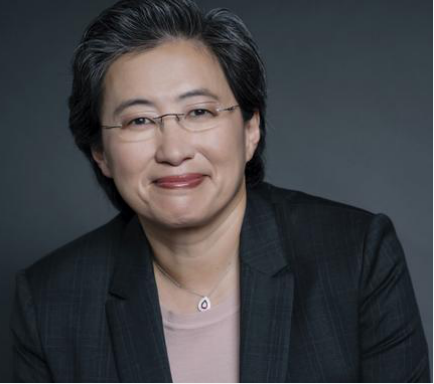
When Lisa Su became the CEO of AMD in 2015, the company was an established but struggling semiconductor business. Developing the company’s strengths in manufacturing, she created RYZEN — a high-performing computing processor chip that would finally allow AMD to compete with its rivals. This creation revolutionized the PC industry by improving battery life and the overall system performance in devices used for both gaming and design. Within just a few years, Su’s hard work increased AMD’s revenue to $6.5 billion and has established the company in the computer market.
47. Brie Code — CEO and Creative Director at TRU LUV
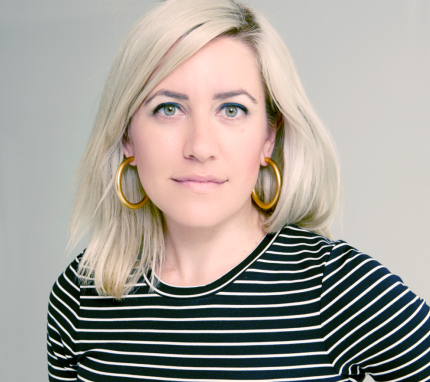
Brie Code has always considered herself “AI passionate,” working with artificial intelligence since the onset of her career. Her interest led her to starting TRU LUV with the aim of creating smartphone AI companions. Her first mobile app, #SelfCare, is based on the idea of aiding relaxation and teaching users meditation techniques. The app was such a success that it made Apple’s 2018 list of best trends in under a year.
48. Stephanie Harvey — Ubisoft Game Developer

Stephanie Harvey is not only a game developer at Ubisoft, but also a professional gamer. What began as a hobby led her to winning multiple electronic world championships and developed into a full-time job. Now, she wants other women to follow in her footsteps as she regularly campaigns against gender discrimination in the gaming industry. She even co-founded an online community, Missclicks, that raises awareness about the under-representation of females in video games. Apart from campaigning for bigger gender diversity in tech, she continues to work as a Twitch streamer.
49. Belinda Johnson — Former COO of Airbnb
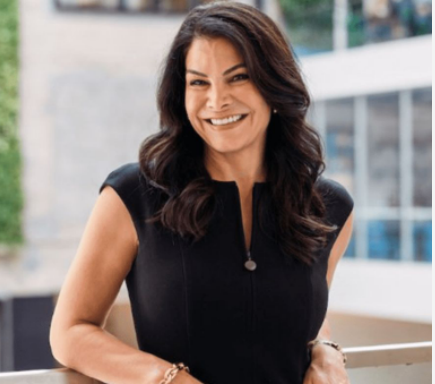
The tech industry needs lawyers just as much as engineers, and Belinda Johnson is one of the best in the field. Known as the first executive employee of Airbnb, she has overseen the company’s growth since its start. With the company through multiple legal and regulatory problems, Johnson helped find solutions to various marketing hurdles. Despite stepping down from her position in 2018, the role has not been filled by anyone else. According to Airbnb’s CEO, Brian Chesky, no one could ever compete with Johnson’s expert knowledge and leadership skills.
50. Ruth Porat — CFO at Alphabet Inc., Google

Ruth Porat is a financial leader and investor who has been mentioned in multiple magazines over the years. Joining Google as a CFO in 2015, she improved the company’s share prices by putting a strict financial plan in place. Recognizing her strengths, Google appointed Porat as the CFO of one of its subsidiaries, Alphabet Inc. She has won various awards and titles for her leadership skills and ability to work well under pressure.
Why Are There Less Women in Tech?
In 1981, the number of women graduating with tech degrees reached its peak, but even then, women only made up 37% of all students. Ever since, female representation among graduates in Science, Technology, Engineering, and Math (STEM) disciplines has stagnated. In 2016, only 35% of tech graduates in the US and Canada were female, while in the European Union, women earned only 27% of STEM degrees. So why is it that fewer women want to work in tech?
The first problem lies in the lack of information at schools. According to a Women in Tech Report by PWC, only 63% of high school girls choose to study STEM subjects, compared to 83% of boys. Despite female pupils performing equally well in compulsory math and science classes, tech subjects remain dominated by boys. Qualitative research suggests that teenage girls are more apt to choose courses based on the perceptions of their peers.
However, the issue of unequal representation stretches beyond the classroom. According to a study by McKinsey & Company, 40% of women in tech agree that their employer doesn’t offer equal opportunities for professional development. On top of that, over 50% of female employees don’t believe there is a fair and objective criterion for job promotions. This discrepancy is reflected in the gender wage gap among STEM employees.
TrustRadius’ report shows that female tech employees earn a lower wage, averaging at 94.6 cents for every dollar their male colleagues earn in the same position. In her paper, Marianne Bertrand suggests women are more likely to accept lower pay if it means they’ll have maternity leave, flexible hours, and the option to work-from-home. Whether or not women agree to lower wages in exchange for flexibility, more needs to be done to allow mothers working in tech to balance their family lives and professional lives.
How Can We Encourage Women to Take Up STEM Careers?
According to a 2018 study, women in tech impact teen girls to a greater extent than male STEM leaders affect teen boys. This shows that finding a successful female role model within the field could greatly impact a young girl’s decision to pursue a tech career in the future.
Despite major female underrepresentation in tech, there are still many successful women paving the way for their successors. They fought, and are still fighting for a more inclusive and diverse industry all around the world. Their stories, though not too popular in the media, inspire and show that with a lot of hard work and determination, women can also succeed in this field.
However, young girls aren’t the only demographic who can make a change. No matter what age, women from all over the world can follow their passions in technology. Learning a new skill is within reach for anyone eager to expand their knowledge. When there’s determination, a path opens up, and the inspiring women mentioned here demonstrate this truth.
We Need to Promote Diversity in the Tech Industry
In spite of having numerous male tech leaders, it’s clear that the industry could benefit from increasing its female workforce. Without female tech pioneers, we wouldn’t be able to work from home, find love through the Internet or use the world wide web.
Although the tech industry is slowly starting to welcome more female employees, both in entry-level positions and as leaders, we still have a long way to go before the gender gap disappears.
Until then, we need to show younger generations the opportunities available to them in STEM. With the 50 inspiring leaders on this list, we can prove to people all over the world that the tech industry can be conquered by anyone — no matter their age, gender or cultural background.




Leave a Comment
Cancel